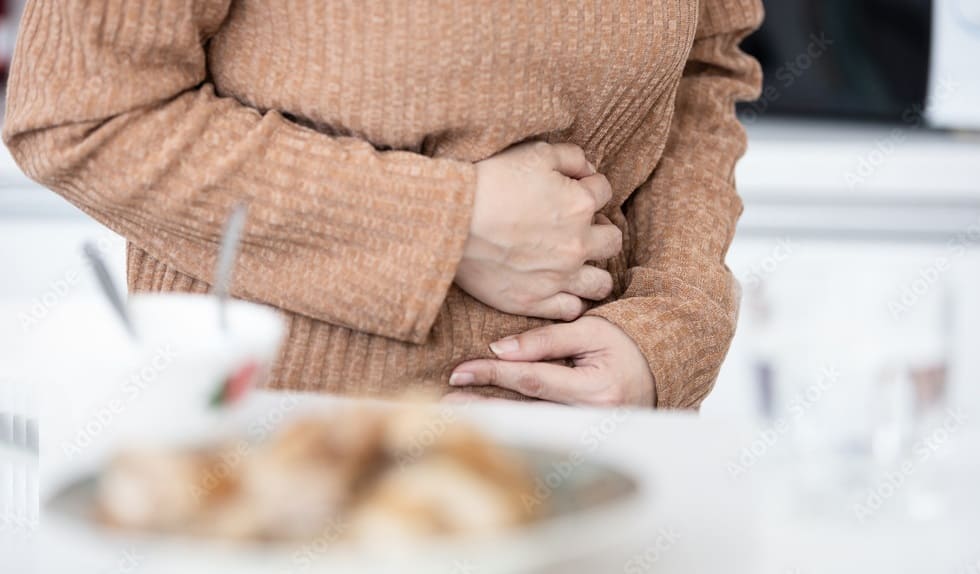Have you ever settled in for a nice meal, only to be met with an overwhelming urge to head straight to the bathroom? If this sounds familiar, you’re definitely not alone! Many people experience the need to defecate shortly after eating, and while it can be a little inconvenient, there’s a scientific reason behind it. In this post, we’ll explore why this happens, what it means for your digestive health, and when it might be a good idea to consult a healthcare professional. Let’s unpack this together!
Gastrocolic Reflex: Your Body’s Natural Response
One of the main reasons you might feel the urge to go right after eating is something called the gastrocolic reflex. Essentially, when you eat, your stomach expands, and it sends signals to your colon to make room for the food. This triggers contractions in your intestines, which can push waste toward the rectum.
How strong this reflex is can vary widely among individuals. Some people hardly notice it, while others might feel a strong need to rush to the restroom. If you’ve ever indulged in a greasy meal or a cup of coffee, you might have felt this effect kick in more intensely!
Is It Normal to Poop After Every Meal?
Feeling like you need to go after every meal can be completely normal—especially if it’s not accompanied by any pain or discomfort. Your digestive system is complex, and for some, it’s just a faster mover. Here are some factors that experts say can trigger this response:
- Larger meals can stimulate a stronger urge due to the increased stomach stretch.
- Fatty foods can speed up digestion, making that urge hit you quicker.
- Caffeine in coffee or tea can act as a natural laxative, especially if you consume it on an empty stomach.
- Stress or anxiety can heighten your body’s response, intensifying the feeling of urgency.
Could It Be Irritable Bowel Syndrome (IBS)?
If you often feel a strong urge to defecate alongside other symptoms like abdominal pain, bloating, or changes in your stool, you might be dealing with Irritable Bowel Syndrome (IBS). This common condition affects many people and can lead to discomfort.
Those with IBS often have a heightened gastrocolic reflex, meaning their bodies respond more dramatically to food intake. If you find that certain foods—like spicy dishes or dairy—trigger your symptoms, it might be worth consulting a healthcare provider for advice on managing your condition.
Is It a Sign of Dumping Syndrome?
For some individuals, particularly those who have undergone stomach surgery, a sudden urge to defecate after eating could indicate a condition called dumping syndrome. This occurs when food moves too quickly from the stomach to the small intestine, leading to symptoms like diarrhea, nausea, and cramping.
If you’ve had any gastrointestinal surgery and frequently experience these urgent bathroom trips after meals, it’s essential to talk to your doctor. They can help you find ways to manage your symptoms effectively.
When to Be Concerned?
While feeling the urge to defecate after eating is often normal, there are times when it might signal a more serious issue. Here are a few red flags to watch out for:
- Blood in your stool: This is a serious concern and should be addressed immediately.
- Unexplained weight loss: If you’re losing weight without trying, it’s time to see a healthcare provider.
- Severe abdominal pain: Persistent or intense pain after meals warrants a medical evaluation.
- Changes in bowel habits: If you experience consistent diarrhea or constipation, it’s worth seeking advice.
Tips to Manage Post-Meal Bathroom Urges
If you find the post-meal urgency to be more of a nuisance than a norm, here are some friendly tips to help you manage it:
- Eat smaller meals: Instead of large portions, try having smaller meals more frequently throughout the day.
- Limit trigger foods: Pay attention to how your body reacts to fatty, spicy, or heavily caffeinated foods and try to limit them.
- Practice mindful eating: Slow down! Eating at a relaxed pace and chewing thoroughly can make a difference.
- Stay hydrated: Drink plenty of water throughout the day, but consider minimizing liquid intake during meals.
- Keep a food diary: Tracking what you eat and how it affects you can help identify potential trigger foods.
Final Thoughts
Feeling the need to defecate right after eating is often just your body’s way of processing food. In most cases, it’s nothing to worry about. However, understanding your body’s signals can provide reassurance and help you manage any discomfort you might experience.
If you’re facing additional symptoms or if these bathroom trips are disrupting your daily life, don’t hesitate to reach out to a healthcare professional. They can provide the insight and support you need to keep your digestive health on track.
Your body is unique, and tuning in to its responses can help you navigate your meals more comfortably. Keep your digestive system happy, and remember, it’s perfectly okay to seek help if something doesn’t feel right!
